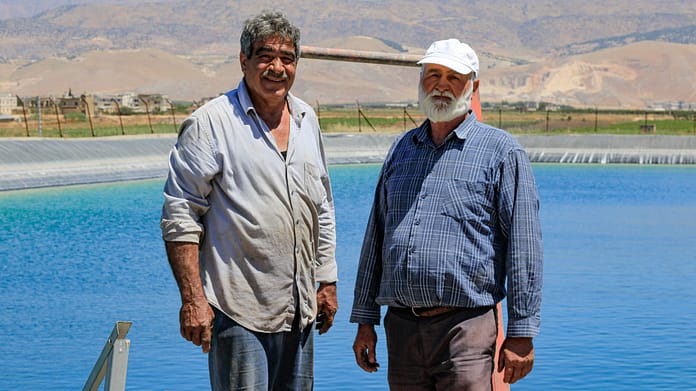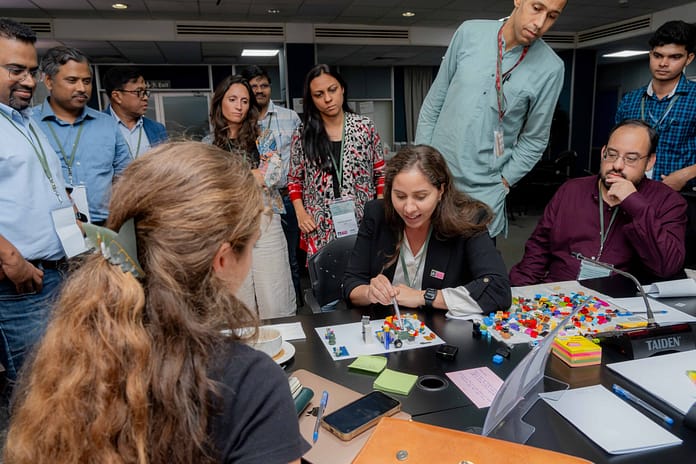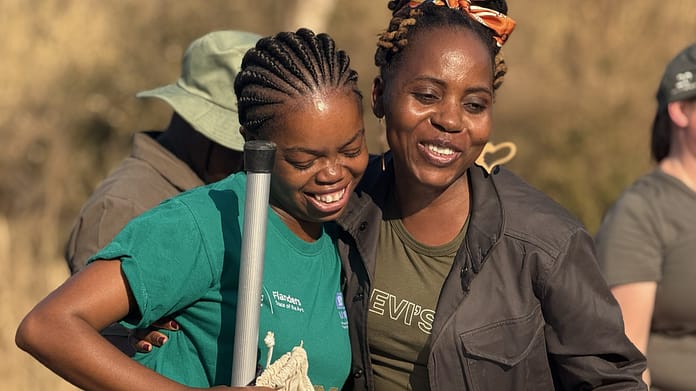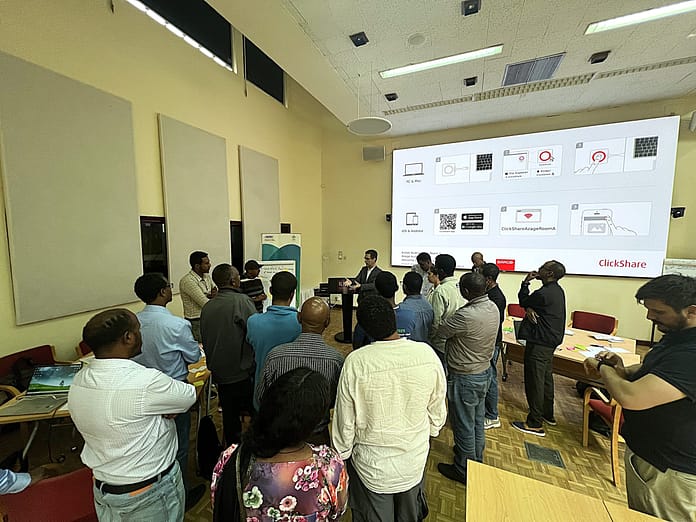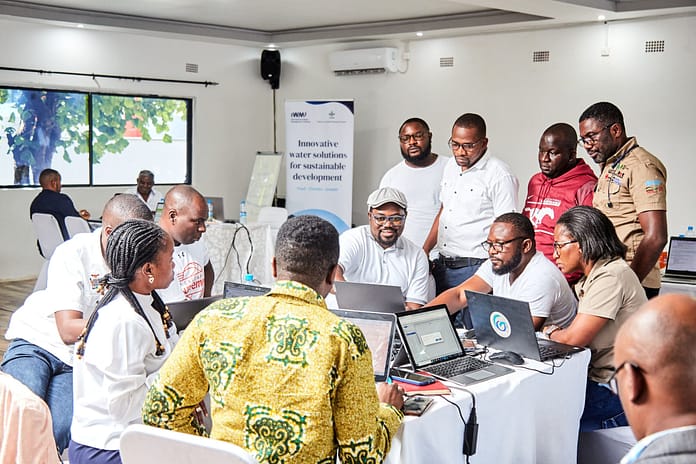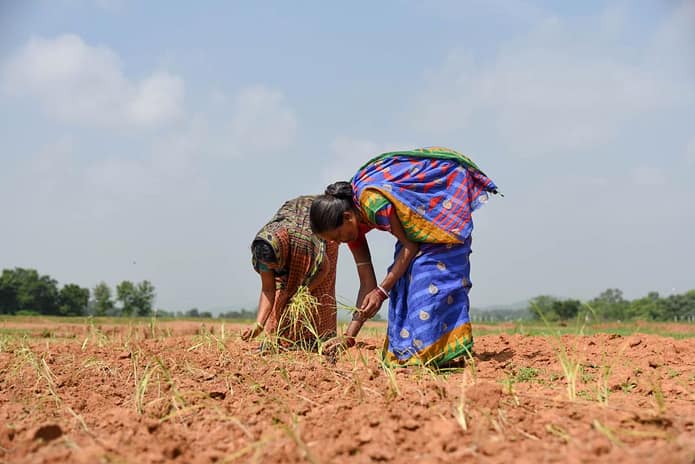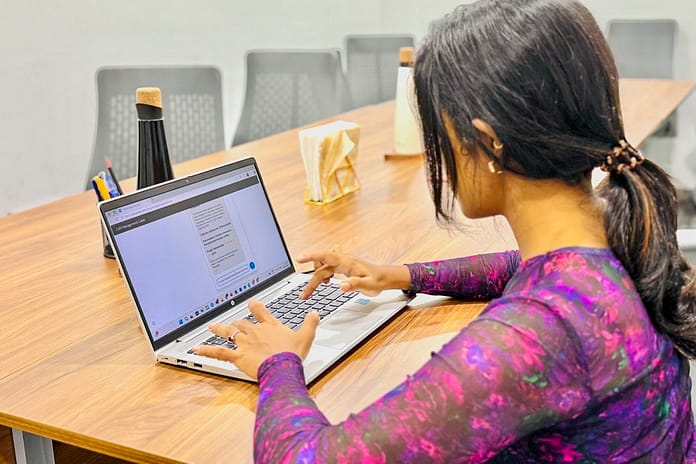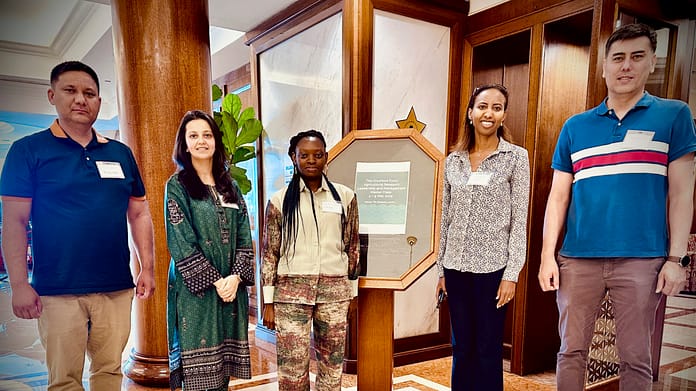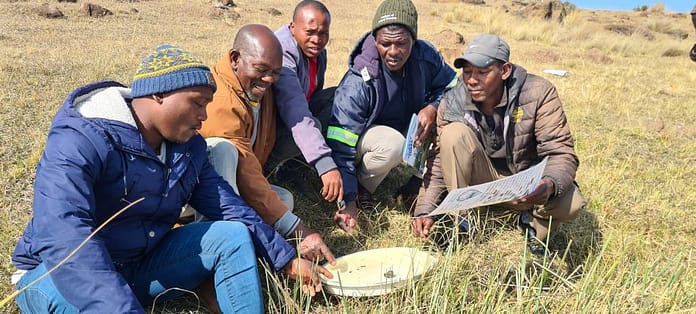In the four southern African countries that share in the Limpopo River Basin — Botswana, Mozambique, South Africa and Zimbabwe — water managers work hard to monitor water levels across this vast area and provide scientific recommendations to decision-makers. They now have access to powerful new tools: a Digital Twin providing a virtual model of water in the basin, and a bespoke AI assistant capable of summarizing complex science into clear recommendations and graphics.
From 9-11 June 2025, representatives from member states of the Limpopo Watercourse Commission (LIMCOM) took part in a hands-on training on the Digital Twin at a workshop held in Gaborone, Botswana. As well as giving feedback on the tools, they learned about how to use AI responsibly and effectively, and discussed how to incorporate citizen science data to empower local communities.
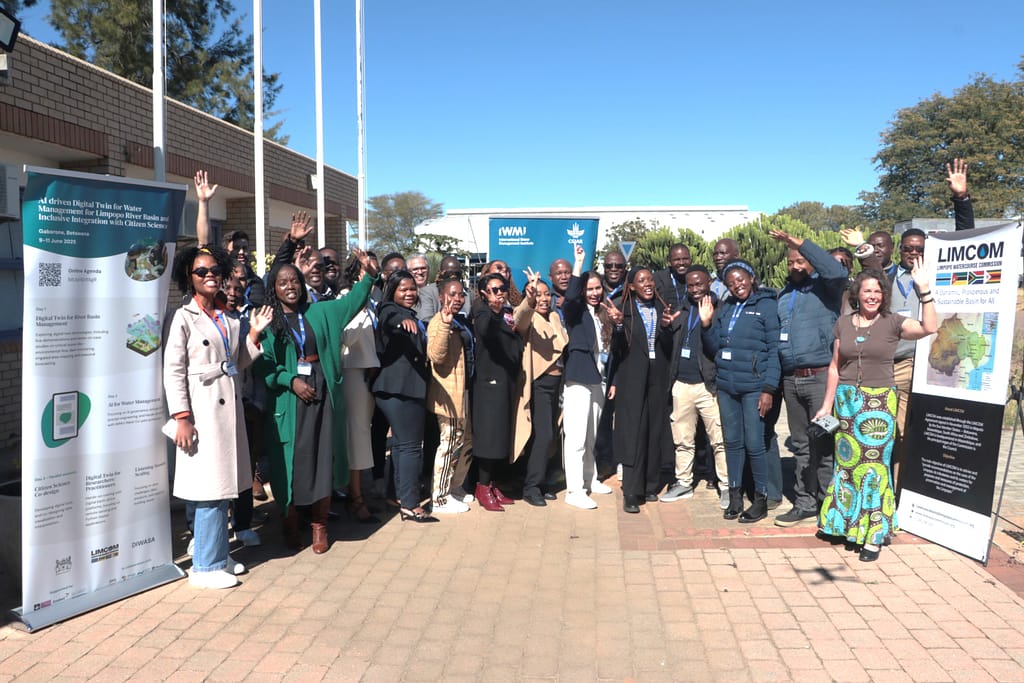
The Digital Twin
The Digital Twin works by integrating real-time monitoring data, while using tools such as satellite images, modelling and historical data to fill in gaps to create an accurate virtual representation of the Limpopo River Basin.
LIMCOM Executive Secretary Sergio Sitoe highlighted the importance of the project for transboundary water management and flood forecasting.
Participants learned to use the Digital Twin to generate information about what is happening in the basin. They also discussed the need for regional agreements, data integration, capacity building, and inclusive design to implement the system effectively.
“I feel I can use all of the information I learned in real life,” said Martha Zunguze, a Member State representative from Mozambique. She added, “One of my responsibilities is monitoring irrigation areas. We learned that by using a Digital Twin, we can identify areas where irrigation is taking place in real time.”
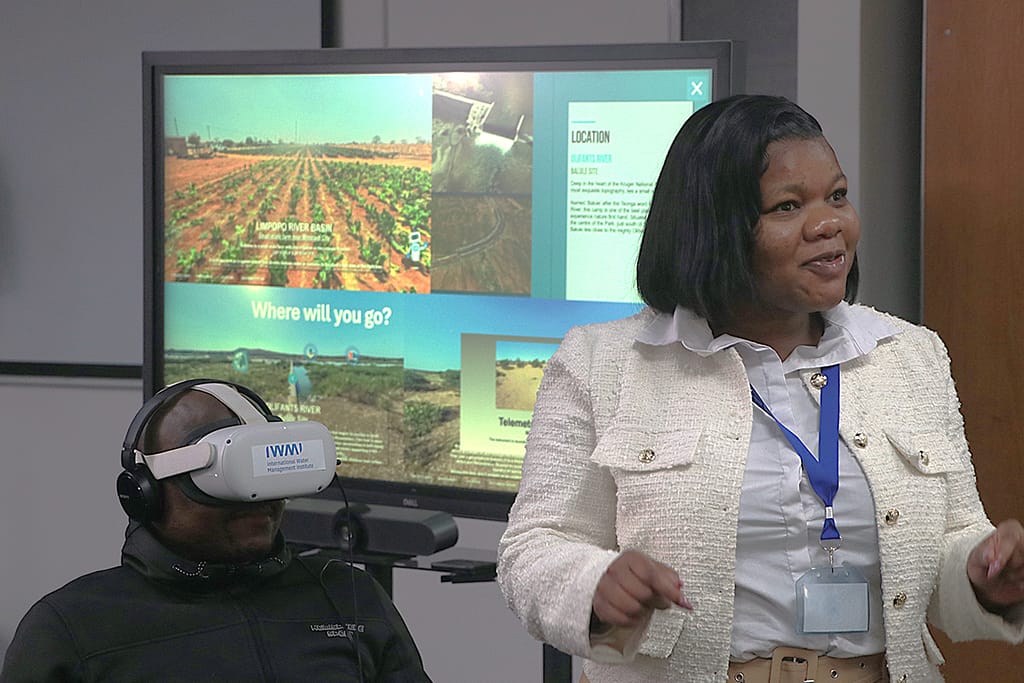
Ofopotse Pule, a representative from Botswana, concurred, “With the Digital Twin, we can visualize the current state of the river and understand how it impacts other member states. This makes it easier to present information to decision-makers in a clear, visual format, which helps secure their buy-in and support.”
Technical staff learned about Digital Earth Africa’s satellite datasets, which have been a crucial source of data to build the Digital Twin. For example, it has been used to monitor and forecast the volume of water available in some dams in the basin, map water bodies and estimate water use from irrigated areas.
Responsible use of AI and hands-on AI agent for Limpopo
Participants learned how to quickly generate analyses by using a bespoke AI agent developed for the Limpopo River Basin, as part of a Microsoft-supported research project, which accesses near real-time data, modelling and documents from the Digital Twin itself.
Participants refined their skills to create prompts that generate the data they need and reports in their own language. An important part of the discussion focused on responsible AI use. The group explored AI governance and ethics, examining potential risks such as energy use and accountability for decisions made using these AI-driven tools.
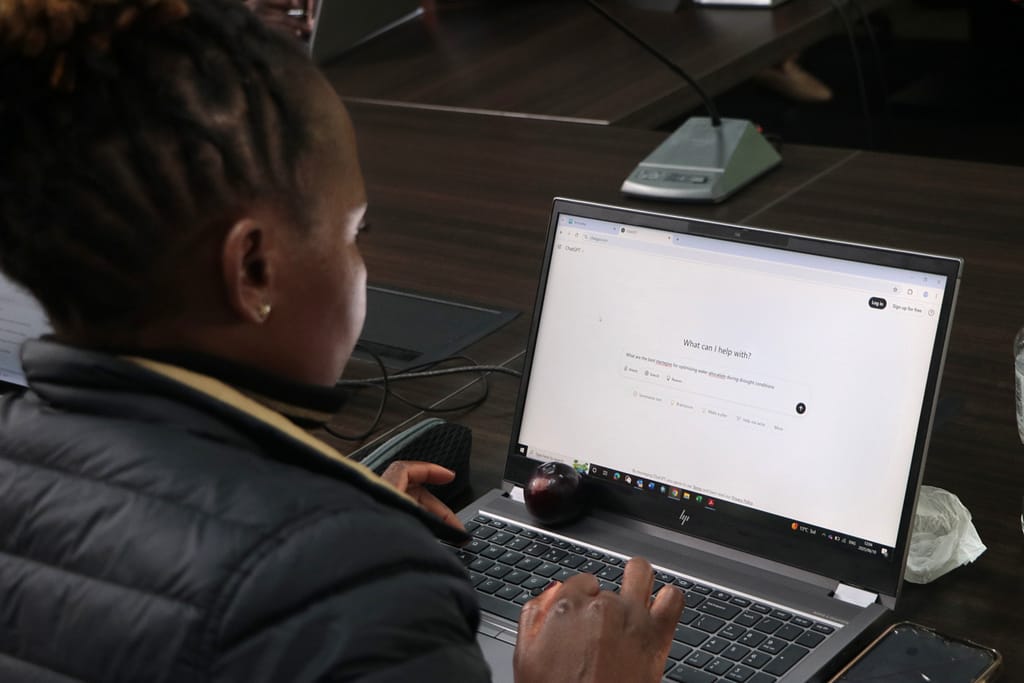
“Using these AI tools makes life very simple for us. Sometimes we are working late at night trying to analyse the huge volume of data,” said Thulani Sibanda, a Member State representative from Zimbabwe. “Once you get used to these tools, it becomes more efficient to generate good reports for policymakers. These tools are necessary for us as a country.”
“It is reliable; I can relate to it,” said Moloko Alfred Magwetla, a Member State representative from South Africa. “I will definitely make use of it especially when it comes to mobilization of our stakeholders: the communities, companies and all those relating to water management system in the Limpopo.”
Democratizing data
To fill data gaps in areas such as water quality and include local communities, the next step is to better integrate citizen science into the Digital Twin. With the support of Enabel, the Belgian agency for international cooperation, and in close partnership with the UNICEF Yoma digital marketplace, the Association for Water and Rural Development (AWARD) and GroundTruth, IWMI has created tools to digitize and validate data that citizen scientists collect.
At the workshop in Botswana, participants began to co-design approaches to include citizen science data in the Digital Twin, and to create a transboundary citizen science monitoring network across the basin.
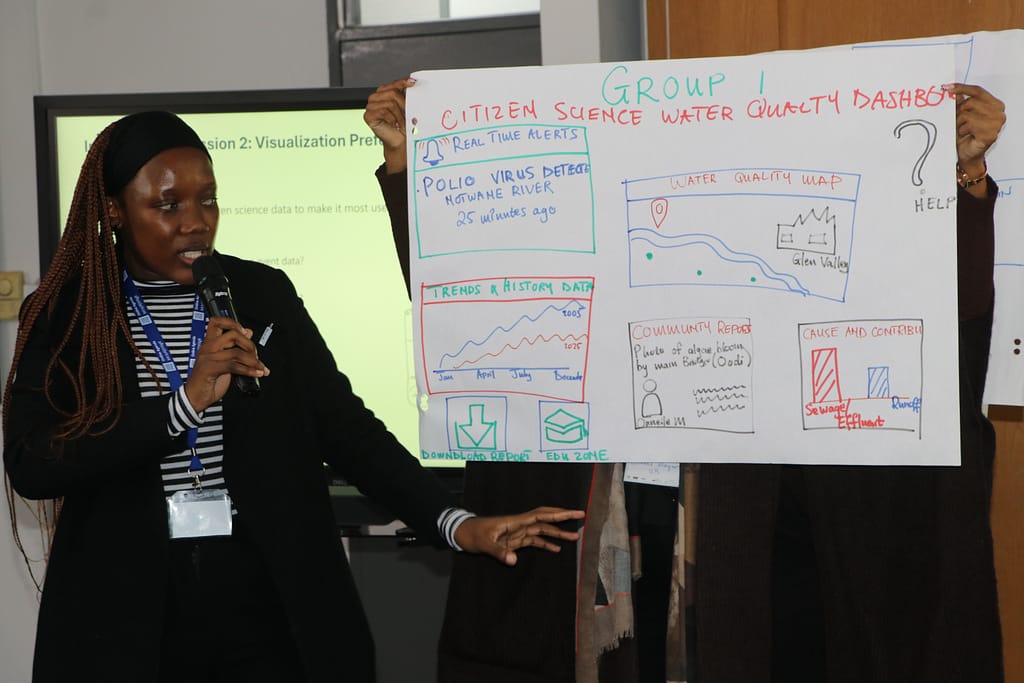
“Our data collection is not quite comprehensive, mainly due to the cost of maintaining infrastructure, so the inclusion of citizen science can be very beneficial to us,” said Timothy Tashaya, from Zimbabwe. “That will improve our coverage and also involve the communities that are affected to be part and parcel of the data collection.”
One theme that emerged throughout the conversations was the importance of including cross-generational and indigenous knowledge about the basin. “We are very interested in biophysical data from citizens, but there is social information that is very valuable, such as indigenous knowledge,” said Mariangel Garcia, IWMI’s lead of the Limpopo River Basin Digital Twin and citizen science for water management projects. “It was interesting to see how the co-design brings creativity but also collaboration.”
“We need to support communities to better understand what technology — and specifically AI — can do for them,” remarks Garcia. “Then, we can be creative in together trying to provide solutions for our communities.”
As LIMCOM members return to their respective countries with new skills in Digital Twin technology and AI-assisted water management, IWMI and our partners will continue to focus on expanding community engagement and integrating citizen science to create a truly inclusive, transboundary monitoring network that combines cutting-edge technology with local knowledge and perspectives.
—-
The workshop “AI-driven Digital Twin for Water Management for Limpopo River Basin and Inclusive Integration with Citizen Science” was organized by the International Water Management Institute (IWMI) alongside LIMCOM and the Digital Innovations for Water Secure Africa (DIWASA) project. The CGIAR Digital Transformation Accelerator, Enabel and the Leona M. and Harry B. Helmsley Charitable Trust, in collaboration with Amazon Web Services, Digital Earth Africa, the Global Water Partnership and Microsoft supported the workshop.
LIMCOM is advancing the Digital Twin initiative under the project “Integrated Transboundary River Basin Management for the Sustainable Development of the Limpopo River Basin,” which aims to uplift the living standards of the basin’s population and conserve the basin’s resources and ecosystem services. LIMCOM is implementing the project in partnership with the Global Water Partnership Southern Africa (GWPSA), with support from the United Nations Development Programme (UNDP) through funding from the Global Environment Facility (GEF).


